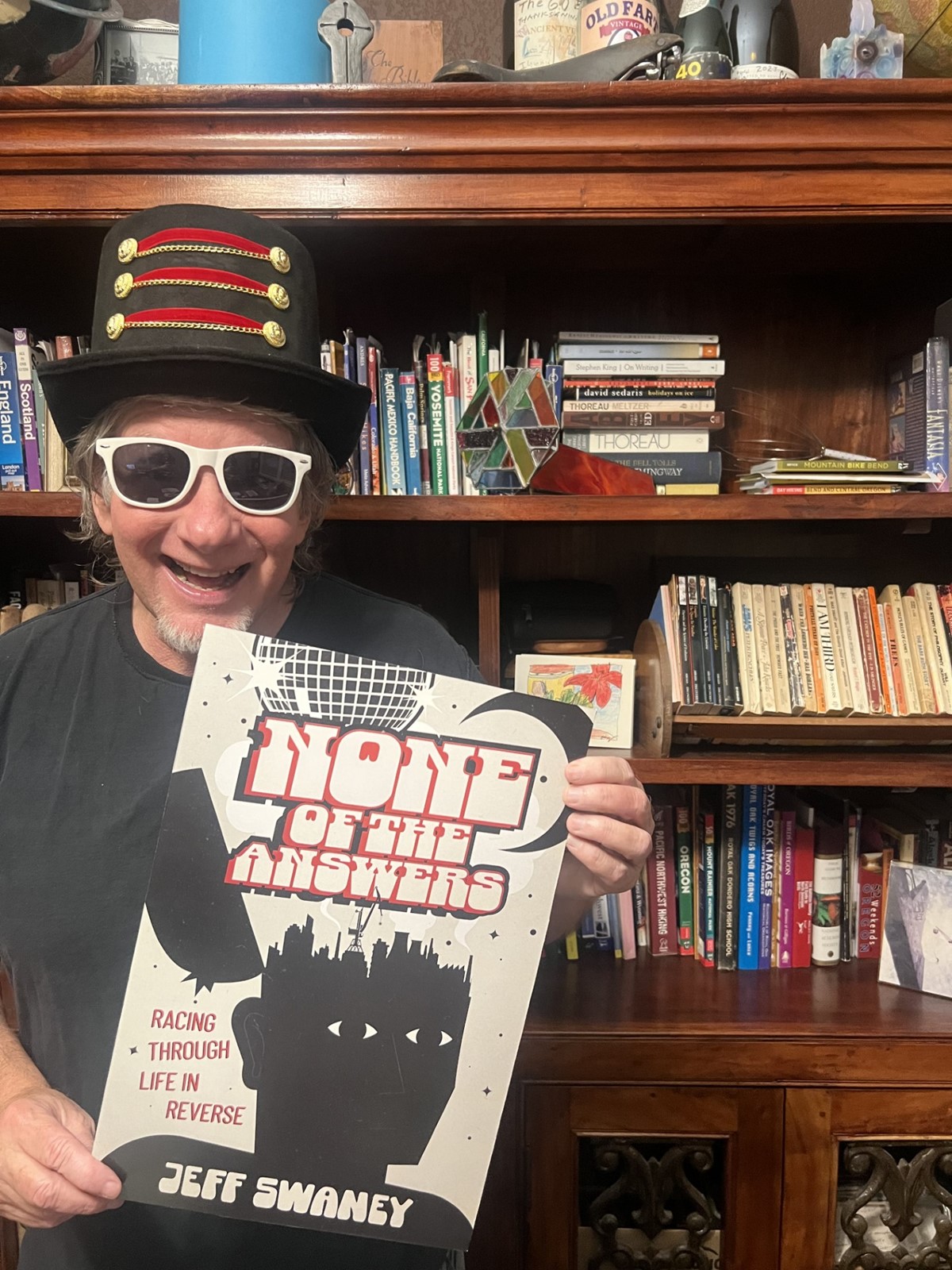
You can take the man out of Motown, but you can’t take Motown out of the man.
And so it goes for Jeff Swaney, a native Detroiter who made it big in Dallas as a tech engineer, entrepreneur, promoter and real estate developer.
Now, add author to the list.
Swaney’s first book — a freewheeling memoir titled “None of the Answers” — offers a fast-paced, personal spin through his life and times, from days as an “all-star altar boy” in Royal Oak to factory work at Detroit’s Budd Wheel, to rubbing shoulders with high-rollers shaping modern Dallas.
Throughout, Swaney, 66, proudly points to his Motown roots as essential to who he is and what he’s accomplished.
“There’s a grittiness to Detroit that is part of me,” he says. “Detroit is in my blood and I am proud of it.”
Swaney will make a homecoming of sorts this month to promote his book at several book signing events. With him, he said, will be his two teenage children. In addition to seeing old friends and a sister in Royal Oak, Swaney said, he is determined to share key Detroit-area landmarks with his children.Must-see stops include the Motown Museum, as well as the boyhood neighborhood in south Royal Oak where he was an altar boy at St. Paul Lutheran Church. It’s all part of a mission to better understand life and its lessons, he said.
His book explores those lessons in a first-person, anecdotal style that some reviewers compare with the “gonzo journalism” delivered by Hunter S. Thompson. Thompson’s work is described as a participatory writing style in which the author combines social commentary and self-satire.
For his part, Swaney says his autobiography is influenced by one of his favorite storytellers — American humorist David Sedaris, whose work was popularized on National Public Radio. In promoting Swaney’s book, publisher Simon & Schuster said his story is one of “life lived outside the box.”
“Follow Swaney from the start of his life, born dirt poor in Detroit … to fast forward reflections of a life well lived. Death-defying outdoor stunts, collegiate misadventures, penniless far-flung world travel and birthing illegal night clubs would eventually lead to Swaney becoming a business leader.”
The book traces Swaney from his birth in Detroit to parents who met and fell in love while working on the loading dock at the former J.L. Hudson’s landmark department store on Woodward Avenue. Through more than 300 pages, Swaney recounts childhood in Royal Oak, graduating from Dondero High School and earning a hybrid degree in marketing and engineering from Michigan State University (“a great school,” he emphasizes).
His degree and his achievements reflect the mind of an engineer with conversational and marketing skills. The MSU program created a path, he said, “for engineers who know how to talk to people and marketers who can use a computer.”
As a Michigan State freshman, Swaney writes in his book, he learned an important early lesson when an instructor wrote “TANSTAAFL” on the chalkboard. The meaning: “There Ain’t No Such Thing As A Free Lunch.”
Words to live by, Swaney decided.
After graduation, Swaney left the Rust Belt for Dallas, joining computer giant Hewlett-Packard and running with a crowd of young, up-and-comers who had migrated to Texas. From that group came a leadership generation that transformed much of Dallas, including the community’s Deep Ellum district, famous for nightclubs, art galleries, concert venues, eateries and avant-garde theater.
Over time, Swaney emerged as a key player in Deep Ellum, where he nurtured a promoter and developer career that spanned more than three decades. The Dallas Observer credits Swaney as an “unsung architect” of an era that produced a funky district where “creativity dripped from warehouse walls and history was made one wild night at a time.”
Among the friends made by Swaney is billionaire Mark Cuban, a Pittsburgh native who began his career in Dallas as a bartender. His subsequent success in the computer industry placed him among America’s wealthiest entrepreneurs, leading to ownership of the Dallas Mavericks basketball team and a longstanding role on television’s “Shark Tank” show about dealmaking and entrepreneurial hustle.
Swaney describes Cuban as “loyal to his friends.” Cuban, in turn, endorsed Swaney’s book, writing:
“If you know Dallas, you know Deep Ellum. But what you don’t know are the stories of how it became a Dallas destination and how Jeff Swaney grew into the person who made it happen.”
Swaney said retracing life’s path is essential to understanding one’s purpose. The “journey” he said is as important as lessons learned.
At the end of the journey and the book, Swaney sums up words to live by, writing:
“As you rock along in your amazing gift of life, consider … these tidbits that could supplement your toolbox.
• Awareness, acceptance and action.
• Less is more.
• Simplify, simplify, simplify.
• Know your stuff.
• Take a chance.
• Patience, perseverance and persistence bring resilience.
• Listen and learn.
• Trust your gut.
• Follow your heart.
• Immerse in humor.
• Coexist.
• Have faith and gratitude.
• Live with grace and love.
“Be mindful of the causal loops in your journey and your actions, and the benefit to yourself and the cosmos,” he said. “And, like I ask of my kids and myself regularly, ‘Just do your best.’”


 PREVIOUS ARTICLE
PREVIOUS ARTICLE
